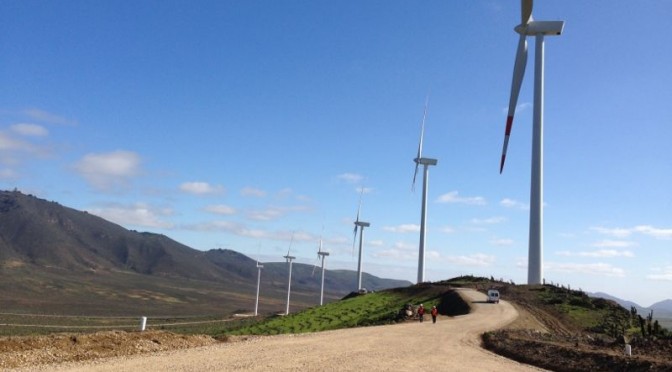Chile will have the first concentrated solar power plant in Latin America (cerro Dominador) and for years it has been promoting the use of wind energy. On the last day of the year 2019, the company Enel Generación Chile carried out the disconnection and cessation of operations of the Tarapacá Plant, which it planned to do in May 2020. This plant located in the northern Chilean desert has an installed capacity of 158 MW equivalent to 25% of the total capacity of coal centers that Enel has in Chile.
The 158 MW plant, opened in January 1999, was definitively disconnected from the Chilean National Electric System on Tuesday, December 31. Two coal-fired power plants of other companies have already ceased their work previously.
In Chile, subsidiaries of global giants Enel, Engie, AES Corp and Chile’s Colbún operate in the electricity sector.
Of all these, Enel Chile is the largest electricity company in that South American country by installed capacity: 7,500 MW. Through Enel Generación Chile and Enel Green Power Chile, it generates 4,700 MW corresponding to renewable energies (3,500 MW of hydroelectric power, more than 600 MW of wind power, about 500 MW of solar energy and approximately 40 MW of geothermal energy).
As read on the company’s website, Paolo Pallotti, general manager of Enel Chile, said that such closure “is a significant step in our path to lead Chile’s transition to an increasingly clean and sustainable matrix.”
This country of the South American cone has been promoting in recent years the development of clean energies to leave its high dependence on polluting fuels, headed by coal, which represents about 40% of its energy matrix.
Advancing the end of the operations of the Tarapacá Power Plant, according to Paolo Pallotti, constitutes “another step in the journey that began 10 years ago with a commitment to renewable energies in Chile, which advanced with the voluntary return to the State of the water rights of projects that did not fit with the reality of the country and that today continues with the plan to close coal plants and with the commitment to increase investments to build new renewable projects and promote new uses of electricity ”.
Michele Siciliano, general manager of Enel Generación Chile, explained in turn that the company assumed the “commitment to change our energy matrix and do it in a sustainable way” and in that it included the fate of half a hundred workers of the deactivated plant.
“To all those who worked in Central Tarapacá we offered a relocation plan in other areas of the company, even in some cases in other group companies in Chile. For us this work has been fundamental so that the closure of plants causes the least possible impact on their lives, ”he said.
The Chilean Energy Minister, Juan Carlos Jobet, valued the initiative to advance the closure and noted that 2019 “was a year that for our sector has been marked by the search for agreements and consensus to move towards a more sustainable energy matrix, first with the public-private agreement that led to the Decarbonization Plan of the Energy Matrix, and the recent announcement of four new plants that will advance their exit plan, especially in industrially saturated areas. ”
All this is part of the “Zero Carbon Energy” plan, a structure that provides for a scheduled withdrawal of the country’s thermoelectric plants and the total decarbonization of the national energy matrix by 2040, with the aim of reducing greenhouse emissions and promoting Renewable energy generation.
In June 2019, Chilean President Sebastián Piñera said in an act with the main generators that the initiative seeks to gradually disable about 30 plants currently operating.
“From now on, the strong and clear tendency is to decarbonize our energy matrix to be able to reduce greenhouse gas emissions by 20% in the next five years,” he said and explained that the next stage will be to “fully decarbonize. our matrix towards the year 2040 and be a carbon neutral country towards 2050 ”.
The plan, which also plans to close the first eight thermoelectric plants in five years, is aligned with global initiatives by companies determined to abandon coal-based electricity emission.

